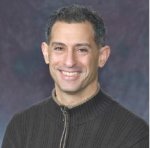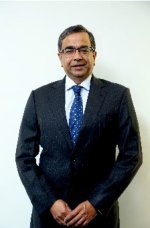Program: Marsilius-Symposium
|
|
Health for All by the Year 2030?
Marsilius multi-disciplinary symposium
February 16-17, 2017
Marsilius Tower, INF 130.1
|
Jointly organized by
Institute of Public Health, Heidelberg University Hospital
Institut für Staatsrecht, Verfassungslehre und Rechtsphilosophie, Universität Heidelberg
Institute of Political Sciences, University Heidelberg
Note: Seats are limited. Please register by sending an e-mail to health2030@uni-heidelberg.de
The most ambitious plan of the World Health Organization for promoting equitable access to essential care worldwide was the ‘Global Strategy for Health for All by the Year 2000’, based on the 1978 Declaration of Alma-Ata (the Declaration). However, the international community was reluctant to commit to the international financing that many developing countries needed. Instead of the comprehensive Primary Health Care (PHC) that was foreseen in the Strategy, policy makers adopted the selective PHC approach –adapted to developing countries’ resource constraints, excluding international public financing from the equation.
The most ambitious plan of the World Health Organization for promoting equitable access to essential care worldwide was the ‘Global Strategy for Health for All by the Year 2000’, based on the 1978 Declaration of Alma-Ata (the Declaration). However, the international community was reluctant to commit to the international financing that many developing countries needed. Instead of the comprehensive Primary Health Care (PHC) that was foreseen in the Strategy, policy makers adopted the selective PHC approach –adapted to developing countries’ resource constraints, excluding international public financing from the equation.
In the new Sustainable Development Goals, comprehensive PHC returns, with a new name: Universal Health Coverage (UHC). But itremains to be seen if, this time, the international community will be willing to contribute what it takes, or if we are heading forselective UHC. The purpose of this symposium is to explore, in a multi-disciplinary way, what it takes to achieve “health for all by theyear 2030” in terms of global advocacy networks, domestic and international financing, and accountability mechanisms. The seminar will be organized along the following themes
- The emergence of UHC as a rights-based global health policy framework;
- The international dimension of UHC: obligation or charity;
- UHC and accountability.
For each of these themes, an international guest will give a keynote lecture, after which a Heidelberg Professor will respond, and the floor will be opened for debate and discussion. Prof. Jale Tosun of the Institute of Political Science will respond to Prof. Jeremy Shiffman. Prof Albrecht Jahn of the Institute for Public Health will respond to Prof. K. Srinath Reddy. Prof. Bernd Grzeszick of the Faculty of Law will respond to Prof. Lawrence O Gostin.
 |
Jeremy Shiffman is Professor in the Department of Public Administration and Policy at American University in Washington, DC. A political scientist by training, his research focuses on the politics of health policy-making in low-income countries, and the global governance of health and social development. Prof. Shiffman’s work has appeared in multiple journals, including The Lancet, The American Journal of Public Health, and Population and Development Review. He is the inaugural recipient of the Gary and Stacey Jacobs Award for excellence in health policy research, and received the award for outstanding scholarship at American University’s School of Public Affairs. Across his career he has received five awards for excellence in teaching. He received a BA summa cum laude from Yale University in philosophy, an MA from Johns Hopkins University in international relations, and a Ph.D. from the University of Michigan in political science.
|
 |
K.Srinath Reddy is President of the Public Health Foundation of India and formerly headed the Departmentof Cardiology at All India Institute of Medical Sciences. He was appointed as the First Bernard Lown Visiting Professor of Cardiovascular Health at the Harvard School of Public Health in 2009 and is an Adjunct Professor of the Rollins School of Public Health, Emory University and Honorary Professor of Medicine at the University of Sydney. He served on many WHO expert panels and has been the President of the World Heart Federation (2013-14). He chaired the Core Advisory Group on Health and Human Rights for the National Human Rights Commission of India for several years and recently the High Level Expert Group on Universal Health Coverage, set up by the Planning Commission of India. Prof. Reddy is a member of the Leadership Council of the Sustainable Development Solutions Network (SDSN), established to assist the United Nationsin developing the post-2015 goals for sustainable development where he chairs the Thematic Group on Health.
|
 |
Lawrence O. Gostin is University Professor at Georgetown University’s Faculty of Law, and also directs the O’Neill Institute for National and Global Health Law. He is Professor of Medicine at Georgetown University and Professor of Public Health at the Johns Hopkins University. Prof. Gostin is the Director of the WHO Collaborating Center on Public Health Law & Human Rights. The WHO Director-General has appointed Prof. Gostin to high-level positions, including the International Health Regulations (IHR) Roster of Experts and the Expert Advisory Panel on Mental Health. He served on the Director-General’s Advisory Committee on Reforming the WHO. Prof. Gostin’s proposal for a Framework Convention on Global Health – an international treaty ensuring the right to health – is now part of a global campaign, endorsed by the UN Secretary-General and the Director of UNAIDS. |
Thursday, 16th February 2017: open lecture
|
17.00 |
Opening and Welcome
|
|
17.10 |
Universal Health Coverage, the present situation
Robert Yates / Project director of the UHC Policy Forum, London
The political economy of Universal Health Coverage
Walter Flores / Director, Center for the Study of Equity and Governance in Health Systems (CEGSS)
What are the challenges of UHC in post-conflict and fragile state countries?
Moses Mulumba / Advocate of the High Court of Uganda, Head of the Centre for Health, Human Rights and Development
The Quest for UHC through the Right to Health Lens in Uganda
Gorik Ooms / Professor of Global Health Law & Governance, London School of Hygiene and Tropical Medicine
The right to health: a citizen’s right or a human right?
|
Friday, 17th February 2017: Symposium (registered participants)
|
9.00 |
Session 1: The emergence of UHC as a rights-based global health policy framework
|
|
10.30 |
Coffee Break |
|
11.00 |
Session 2: The international dimension of UHC: obligation or charity?
|
|
12.30 |
Lunch |
|
13.30 |
Session 3: UHC and accountability
|
|
15.00 - 15.30 |
Coffee Break |
|
15.30 - 17.00 |
Session 4: Conclusions
Closing remark: Till Bärninghausen / Professor, Director of Institute of Public Health, Heidelberg University |
Seitenbearbeiter:
Geschäftsstelle
Letzte Änderung:
08.09.2017

